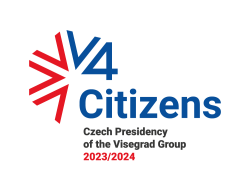
Visegrad Insight 1/2015 Out
New issue of Visegrad Insight is launched June 11th at Wroclaw Global Forum.
Last year Res Publica together with Google, Financial Times, and the International Visegrad Fund launched the list of innovators from Central and Eastern Europe – New Europe 100. This was accompanied by the special issue 2(6)/2014 of Visegrad Insight devoted to new economy in the region. In the current issue we discuss what sort of education will bring up more innovators. How to assure the next generation will be equally, or even more, creative, innovative, and entrepreneurial?
Humans are not machines and we cannot just upload our skills, desires, and motivations like we upload new applications to electronic devices, stresses Filippo Addarii from The Young Foundation.
Benjamin Cunningham underlines that Central Europe has an opportunity for a more radical rethink of education. The questions include: who is doing the teaching, what subjects take precedence, and should education be concentrated in a person’s younger years?
Oľga Gyárfášová compares higher education in Slovakia to the Augean stables, at the same time stressing that academics have finally realized the need of complex reform, starting from themselves.
Iván Szelényi defends humanities and praises the system of American liberal arts colleges.
Private and public higher education institutions in Visegrad Group have to attract more foreign students in order to survive, argue Julie Daňková and Martin Ehl.
We present 7 educational initiatives that promote active participation of women in IT, foster leadership and encourage civic engagement among younger generation.
Also in the issue:
- novelist Péter Nádas asks how ideas of progress and regression play out in the Hungarian society,
- former PM of Slovakia Iveta Radičová discusses possible scenarios for Ukraine,
- Wojciech Przybylski, the editor-in-chief of the magazine, writes about a current crisis in Visegrad Group. Jiří Schneider, the director of Prague Security Studies Institute, and
- Henry Foy, Financial Times Central Europe correspondent, also take on the topic.
Visegrad Insight is available in print and digital formats at visegradinsight.eu and present at major conferences in the region, starting with Wrocław Global Forum 11-13th June.
Visegrad 1(7)/2015 contents:
EUROPE: EDUCATIONAL ALTERNATIVES
Survey: What sort of education? Zoltán Balog, Pavel Bělobrádek, Włodzisław Duch, Peter Pellegrini, Filippo Addari
Assembly line. Education and the information age – Benjamin Cunningham
In praise of the liberal arts – Iván Szelényi
Looking for Hercules, or the quality of higher education in Slovakia – Oľga Gyárfášová
A Case for the Visegrad College for Advanced Studies – Leszek Koczanowicz
Watchlist: educational initiatives
ECONOMY: HOW UNIVERSITIES PAY OFF
Of money, quality, and love: What motivates people to pursue higher education – Martin Ehl
It is foreigners who help us survive – Julie Daňková and Martin Ehl
Who’s coming to study in the V4? – Matteo Tacconi
Inquiring minds before all – Richard Berkley
INTERVIEW: SCENARIOS FOR UKRAINE
Decentralization must happen. Iveta Radičová talks scenarios for Ukraine with Wojciech Przybylski
INTELLIGENT MIND: QUESTIONS AT DUSK
Questions at dusk: or the reciprocity of progress and regression – Péter Nádas
Where are the faces? Borders, Nations, and Banknotes – Aleš Debeljak
NEW EUROPE 100: INNOVATIVE MINDS
Digital catch up is not enough – Anna Wójcik
VISEGRAD ABROAD: CE DISRUPTED
Losing faith. What is Visegrad to Poles? – Wojciech Przybylski
CE disrupted. Where does the disagreement come from?
Were we defeated in Slavkov? – Jiří Schneider
It’s getting crowded – Henry Foy
The group and the press – Eric Maurice
Towards mixed development profile – Zsuzsanna Végh
CULTURE: INCITING DEBATES
Translators’ guide to new fiction – Tomasz Grabiński and Margit Garajszki
Book reviews by Aleksander Kaczorowski, Michal Musil, Juraj Kušnierik, Imre Bartók
Poland’s controversial Oscar – Filip Mazurczak
Central and Eastern Europeans in pirate libraries – Bodó Balázs discusses knowledge diet in the digital age
Technology: the best new apps
Let’s talk, neigbourhood. New “We Four+” talk show – Štefánia Košková
The world through a V4 lenses. The phenomenon of the Opava Institue of Creative Photography – Katarzyna Sagatowska







